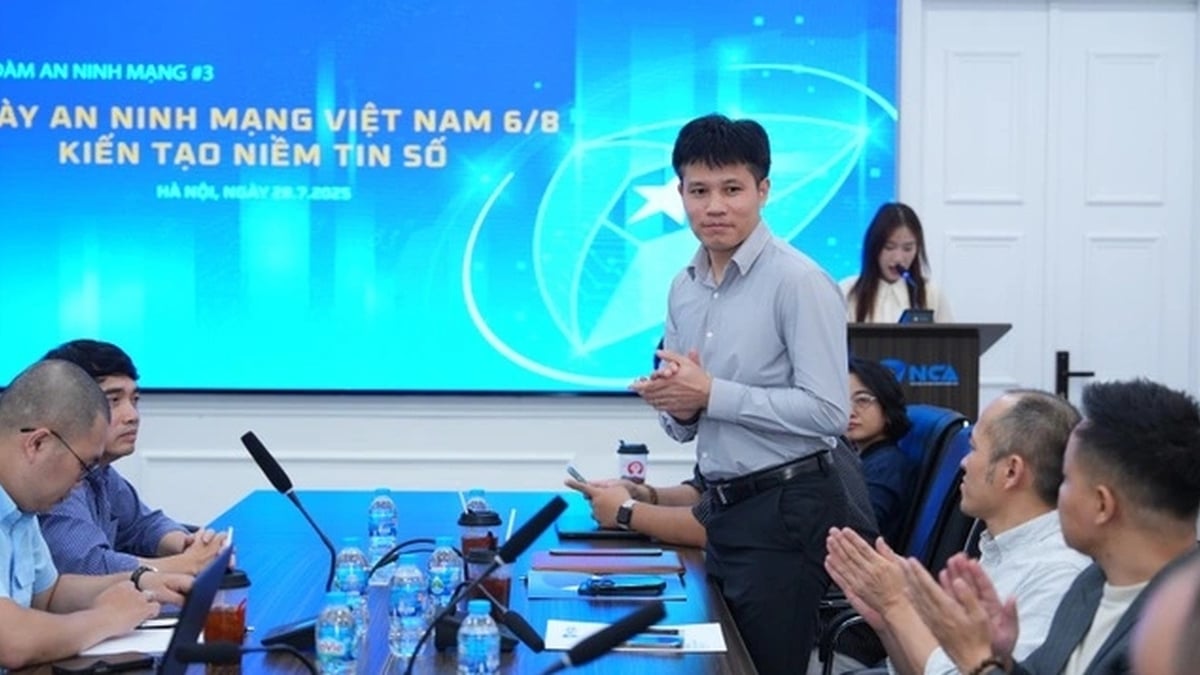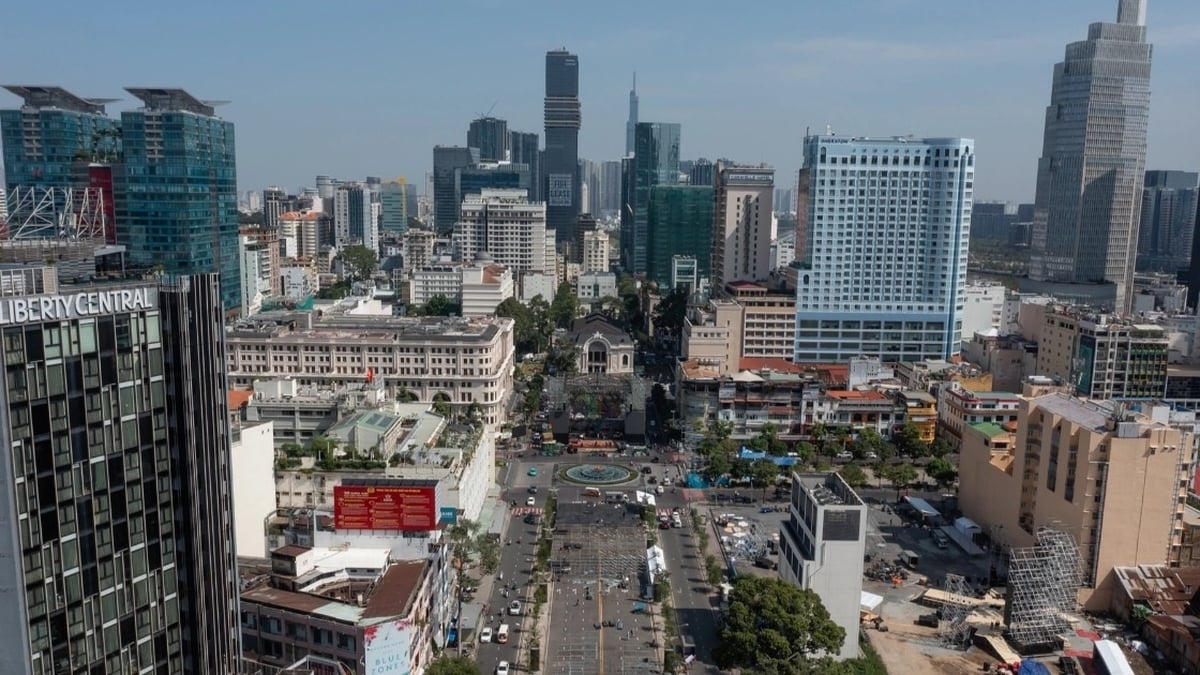On May 24, the Vietnam Banks Association (VNBA) issued Official Letter No. 203/HHNH-PLNV to the State Bank of Vietnam on the summary of the fourth year of implementing Directive 12/CT-TTg of the Prime Minister on "black credit", and at the same time had many recommendations and proposals to contribute to preventing and repelling "black credit".
In this dispatch, VNBA said that in the first months of 2023, the domestic economy faced many difficulties due to the impact of the global economy . In that context, credit institutions (CIs) also faced many difficulties and challenges in the process of operation.
Specifically, the bank interest rate level has cooled down significantly after the State Bank's decision to lower the operating interest rate, however, the current mobilization and lending interest rates are still high due to the fact that the capital mobilization rate is still growing lower than credit.
In addition, banks' capital mobilization is mainly short-term while long-term loans have not been recovered in the context of customers' declining debt repayment capacity, old mobilizations with high interest rates have not yet matured,... so banks still do not have a basis to sharply reduce lending interest rates.
Enterprises are facing many difficulties, so their ability to absorb capital is low, leading to slow credit growth. By April 20, 2023, credit growth reached over VND 12.23 trillion, up 2.57% compared to the end of 2022, but much lower than the previous year (in the same period in 2022, it increased by 6.46%).
Asset quality has declined, and the problem of bad debt control of commercial banks (CBs) has encountered many difficulties. Although the bad debt ratio on the balance sheet has been controlled at less than 3%. However, the most potential risk is that some debts have in principle become bad debts, but due to debt restructuring, the debt group remains the same, investing in corporate bonds for the purpose of debt restructuring, and then bad receivables, accrued interest must be withdrawn... In fact, in the system, many banks announced their business results in 2022 and the first quarter of 2023, showing that bad debts have increased sharply compared to before, many banks have a bad debt ratio of more than 2%, some banks have a sudden increase of 4%. The asset quality of CBs is strongly differentiated.
The operations of consumer finance companies (CTTC) licensed by the State Bank face many difficulties, especially debt collection activities.
Illegal debt collection is an act that needs to be condemned, any consumer lending company that violates the law needs to be severely punished, even have its license revoked to create fairness and transparency for the market. Recently, the police force has been very active in fighting against illegal credit crimes, and strictly handling debt collectors.
However, along with the recent situation of authorities conducting inspections, a number of headquarters, branches, and expanded offices of financial companies licensed by the State Bank, which have been heavily reported by the press, have seriously affected the reputation and image of the companies and led to debt collection activities being stagnant, bad debts increasing, some customers have "taken advantage" of this news to boycott, claiming that the debt collection activities of these consumer financial companies are illegal, delaying debt repayment and challenging debt collection staff when repeatedly reminded to pay their debts.
The rate of borrowers "not paying their debts" is increasing. Meanwhile, there are no sanctions against these customers and it is difficult to file a lawsuit with low-value debts. In addition, recently there has been a phenomenon of "collective" debt default from a group of customers after information that the investigation agency prosecuted a number of "terrorist" debt collectors, and offensive debt collection has flourished, causing negative impacts on the market, greatly affecting the debt collection activities of financial companies (by December 31, 2022, bad debts of financial companies licensed by the State Bank increased by 23.09% compared to December 31, 2021 and tend to increase in the coming time).
In addition, debt collection staff of CTTC are psychologically affected by being threatened by customers, confused and worried because of conflicting information (arrests, investigations, ... from inspections by authorities). The rate of staff quitting is high, recruiting staff is more difficult than before, due to many reasons such as social prejudice about the job, life risks when working, family impact ...
The fact that customers are late in paying their debts forces consumer finance companies to increase their costs for debt collection, including operations, human resources and legal costs. In addition, according to regulations of the management agency, lending institutions are required to set aside provisions based on the actual bad debt situation, affecting the ability to grow their business. As a result, lending interest rates are forced to be adjusted upward, directly affecting borrowers.
According to VNBA, to contribute to preventing and repelling black credit with the best results, it is necessary to have the synchronous participation of ministries, branches and local authorities. On that basis, the Banking Association proposes a number of solutions.
In particular, VNBA recommends that the State Bank continue to improve the legal framework, develop policies and management mechanisms specific to the industry for the consumer finance sector, creating conditions for financial companies to have an open, safe and compliant operating environment so that they can develop more strongly in the future. For example, the regulation of the standard bad debt ratio for CTCT is higher to suit the customer segment, which is mostly substandard and lends without collateral.
Research, develop and promulgate regulations on the responsibilities and obligations of borrowers towards credit institutions, sanctions against borrowers who deliberately delay debt repayment...
Promote communication of the list of licensed financial companies so that customers understand and do not "equate" them with online loan companies, "black credit". Increase credit growth targets, consider capital support mechanisms for some financial companies.
VNBA also recommended that the Ministry of Public Security continue to investigate and strictly handle illegal “black credit” subjects. At the same time, it is necessary to inform people about the nature of administrative inspections with financial institutions, to avoid causing confusion among people and affecting the psychology of employees at financial companies operating in compliance with the law.
Wisdom
Source





























![[Photo] National Assembly Chairman attends the seminar "Building and operating an international financial center and recommendations for Vietnam"](https://vphoto.vietnam.vn/thumb/1200x675/vietnam/resource/IMAGE/2025/7/28/76393436936e457db31ec84433289f72)







































































Comment (0)